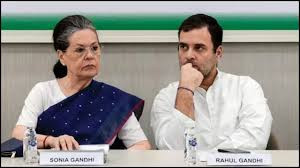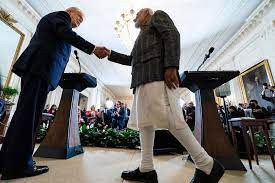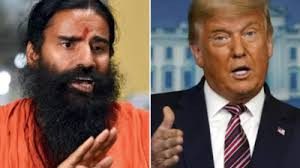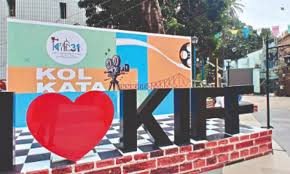National Herald Case Escalates as Rs 142 Crore Proceeds of Crime Charge Filed Against Gandhi Family

IIE DIGITAL DESK : The long-standing National Herald case has taken a significant turn with authorities filing a major charge alleging Rs 142 crore in proceeds of crime linked to the Gandhi family. This development marks a critical phase in one of the most high-profile legal battles involving prominent political figures in India, intensifying scrutiny on the financial dealings surrounding the National Herald newspaper and its parent company.
The National Herald case dates back several years, revolving around accusations that the Indian National Congress leaders — primarily Sonia Gandhi and Rahul Gandhi — misappropriated assets through a complex web of companies associated with the newspaper group. The case alleges that the Gandhi family, through their control of the Associated Journals Limited (AJL) and the Young Indian company, unlawfully acquired substantial properties and funds originally meant for the newspaper's operation.
Recently, investigative agencies concluded a detailed financial probe and submitted a charge sheet specifying that Rs 142 crore involved in these transactions constitute proceeds of crime. The charges suggest that these assets were allegedly diverted and used for purposes other than the National Herald’s original journalistic mission. This move to classify a large sum of money as proceeds of crime significantly raises the stakes for the accused.
The Enforcement Directorate (ED), which is spearheading the financial investigation, stated that this charge under the Prevention of Money Laundering Act (PMLA) was based on extensive evidence, including financial transactions, corporate records, and witness testimonies. The ED alleges that the transfer of assets was orchestrated in a manner to benefit the Gandhi family and their close associates personally, bypassing legal and regulatory frameworks.
The Gandhi family’s legal team has categorically denied any wrongdoing, calling the charges politically motivated and an attempt to harass opposition leaders. They argued that the transactions were legitimate and aimed at reviving the National Herald as a media outlet. Rahul Gandhi and Sonia Gandhi have repeatedly maintained their innocence, asserting that the case is part of a larger political vendetta.
The National Herald case has been closely followed by media and political analysts, as it symbolizes the intersection of politics, media ownership, and financial legality in India. The Rs 142 crore proceeds of crime charge adds a new layer of complexity, potentially impacting the political careers of the accused and the future of the National Herald publication itself.
Legal experts believe that the trial is expected to be prolonged, given the nature of white-collar crime cases and the high-profile defendants involved. The charge of proceeds of crime could lead to asset seizures and further investigations into the Gandhi family’s financial dealings. If proven guilty, the penalties could be severe, including substantial fines and imprisonment.
Meanwhile, the case has stirred political reactions nationwide. The ruling party has hailed the charge sheet as a victory for anti-corruption efforts, emphasizing that no individual, regardless of political stature, is above the law. Conversely, opposition parties have condemned the move as a misuse of investigative agencies to target political rivals.
As the legal proceedings unfold, the National Herald case remains a pivotal example of the ongoing tussle between law enforcement agencies and political powerhouses in India. The Rs 142 crore proceeds of crime allegation signifies not just a financial accusation but also the deepening narrative around transparency and accountability in Indian politics.
You might also like!
















